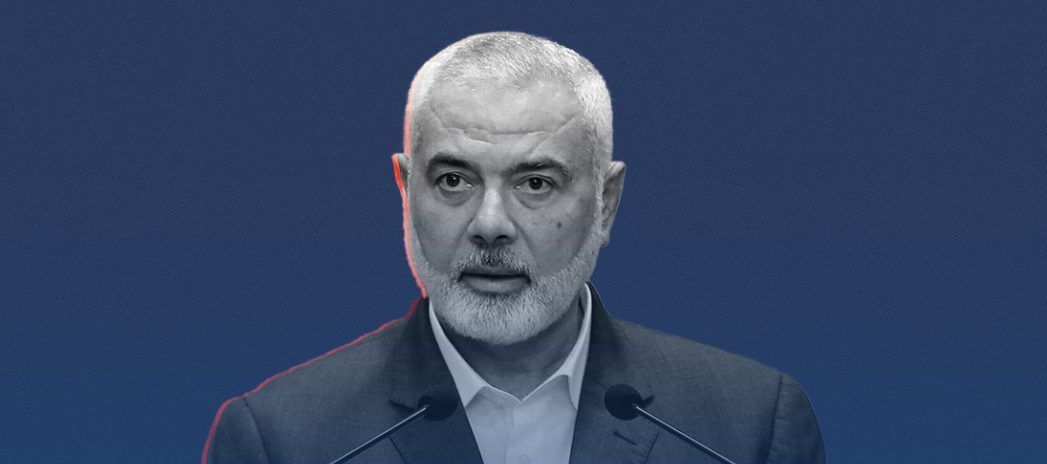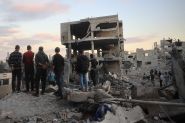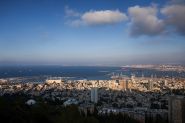- Home
- War in the Middle East
- Haniyeh Killed by Bomb Smuggled into Tehran Guesthouse Months Prior

Ismail Haniyeh, a top leader of Hamas, was assassinated on Wednesday by an explosive device covertly smuggled and placed in the Tehran guesthouse where he was residing, according to a New York Times report citing seven Middle Eastern officials, including two Iranians, and one American official.
Citing five of the aforementioned Middle Eastern officials, the bomb had been hidden nearly two months prior. The guesthouse is protected and managed by the Islamic Revolutionary Guards Corps and is part of a larger compound, known as Neshat, located in an upscale neighborhood of northern Tehran.
Haniyeh had been acting as a top negotiator in the Gaza ceasefire talks and had traveled to Tehran for the presidential inauguration. According to the five officials, the bomb was detonated remotely once it was confirmed that he was inside his room at the guesthouse. The blast also killed a bodyguard, according to the same report.
Haniyeh, who headed Hamas’ political office in Qatar, had stayed at the guesthouse several times while visiting Tehran in the past, according to the anonymous Middle Eastern officials cited by the New York Times.
Iranian officials and Hamas said on Wednesday that Israel was responsible for the assassination, an assessment also reached by several US officials who requested anonymity. The assassination threatened to unleash another wave of violence in the Middle East and upend the ongoing negotiations to end the war in Gaza.
Israel has not publicly acknowledged responsibility for the killing, but Israeli intelligence officials briefed the United States and other Western governments on the details of the operation in the immediate aftermath, according to the five Middle Eastern officials.
The breach of security into Haniyeh's compound is regarded as a catastrophic failure of security and intelligence for Iran and a tremendous embarrassment for the IRGC, which uses the compound for secret meetings, retreats, and housing prominent figures such as Haniyeh.
The device exploded at around 2 AM local time, according to the Middle Eastern officials, including the Iranians. The officials said that startled building staff members ran to find the source of the tremendous noise, leading them to the room where Haniyeh was staying with a bodyguard.
Israeli army spokesperson Daniel Hagari was asked about the New York Times report, to which he responded by saying that "the [Israeli army] conducted only one airstrike on Tuesday night in Lebanon, targeting Fuad Shokr with a precise airstrike. There was no additional airstrike in the Middle East that night, nor was there any missile or UAV."
The compound is staffed with a medical team, which rushed to the room immediately after the explosion. The team declared that Haniyeh had died immediately. The team tried to revive the bodyguard, but he was also dead, according to information in the report.
The leader of the Palestinian Islamic Jihad, Ziyad al-Nakhalah, was staying next door, two of the Iranian officials said. His room was not badly damaged, suggesting precise planning in the targeting of Haniyeh, according to the report.
Khalil al-Hayya, the deputy commander of Hamas in the Gaza Strip who was also in Tehran, arrived at the scene and saw his colleague’s body, according to the five Middle Eastern officials.
The three Iranian officials said that among the people immediately notified was Esmail Qaani, the commander in chief of the Quds Force, the overseas arm of the IRGC, which works closely with Iran's allies in the region, including Hezbollah and Hamas. He notified Iran’s supreme leader, Ali Khamenei, in the middle of the night, waking him up, the officials said.
Four hours after the blast, the Revolutionary Guards issued a statement that Haniyeh had been killed. By 7 AM, Khamenei had summoned the members of Iran’s Supreme National Security Council to his compound for an emergency meeting, at which he issued an order to strike Israel in retaliation, according to the three Iranian officials.
Tehran had already been under heightened security because of the inauguration of Iran’s new president, Masoud Pezeshkian, with senior government officials, military commanders, and dignitaries from 86 countries gathering at Parliament in central Tehran for the ceremony.
The attack was described by Iranian officials as sophisticated and precise, similar in tactic to the remote-controlled A.I. robot technology that was used when Israel assassinated Iran’s top nuclear scientist, Mohsen Fakhrizadeh, in 2020.
Citing five of the aforementioned Middle Eastern officials, the bomb had been hidden nearly two months prior. The guesthouse is protected and managed by the Islamic Revolutionary Guards Corps and is part of a larger compound, known as Neshat, located in an upscale neighborhood of northern Tehran.
Haniyeh had been acting as a top negotiator in the Gaza ceasefire talks and had traveled to Tehran for the presidential inauguration. According to the five officials, the bomb was detonated remotely once it was confirmed that he was inside his room at the guesthouse. The blast also killed a bodyguard, according to the same report.
Haniyeh, who headed Hamas’ political office in Qatar, had stayed at the guesthouse several times while visiting Tehran in the past, according to the anonymous Middle Eastern officials cited by the New York Times.
Iranian officials and Hamas said on Wednesday that Israel was responsible for the assassination, an assessment also reached by several US officials who requested anonymity. The assassination threatened to unleash another wave of violence in the Middle East and upend the ongoing negotiations to end the war in Gaza.
Israel has not publicly acknowledged responsibility for the killing, but Israeli intelligence officials briefed the United States and other Western governments on the details of the operation in the immediate aftermath, according to the five Middle Eastern officials.
The breach of security into Haniyeh's compound is regarded as a catastrophic failure of security and intelligence for Iran and a tremendous embarrassment for the IRGC, which uses the compound for secret meetings, retreats, and housing prominent figures such as Haniyeh.
The device exploded at around 2 AM local time, according to the Middle Eastern officials, including the Iranians. The officials said that startled building staff members ran to find the source of the tremendous noise, leading them to the room where Haniyeh was staying with a bodyguard.
Israeli army spokesperson Daniel Hagari was asked about the New York Times report, to which he responded by saying that "the [Israeli army] conducted only one airstrike on Tuesday night in Lebanon, targeting Fuad Shokr with a precise airstrike. There was no additional airstrike in the Middle East that night, nor was there any missile or UAV."
The compound is staffed with a medical team, which rushed to the room immediately after the explosion. The team declared that Haniyeh had died immediately. The team tried to revive the bodyguard, but he was also dead, according to information in the report.
The leader of the Palestinian Islamic Jihad, Ziyad al-Nakhalah, was staying next door, two of the Iranian officials said. His room was not badly damaged, suggesting precise planning in the targeting of Haniyeh, according to the report.
Khalil al-Hayya, the deputy commander of Hamas in the Gaza Strip who was also in Tehran, arrived at the scene and saw his colleague’s body, according to the five Middle Eastern officials.
The three Iranian officials said that among the people immediately notified was Esmail Qaani, the commander in chief of the Quds Force, the overseas arm of the IRGC, which works closely with Iran's allies in the region, including Hezbollah and Hamas. He notified Iran’s supreme leader, Ali Khamenei, in the middle of the night, waking him up, the officials said.
Four hours after the blast, the Revolutionary Guards issued a statement that Haniyeh had been killed. By 7 AM, Khamenei had summoned the members of Iran’s Supreme National Security Council to his compound for an emergency meeting, at which he issued an order to strike Israel in retaliation, according to the three Iranian officials.
Tehran had already been under heightened security because of the inauguration of Iran’s new president, Masoud Pezeshkian, with senior government officials, military commanders, and dignitaries from 86 countries gathering at Parliament in central Tehran for the ceremony.
The attack was described by Iranian officials as sophisticated and precise, similar in tactic to the remote-controlled A.I. robot technology that was used when Israel assassinated Iran’s top nuclear scientist, Mohsen Fakhrizadeh, in 2020.
Read more



Comments